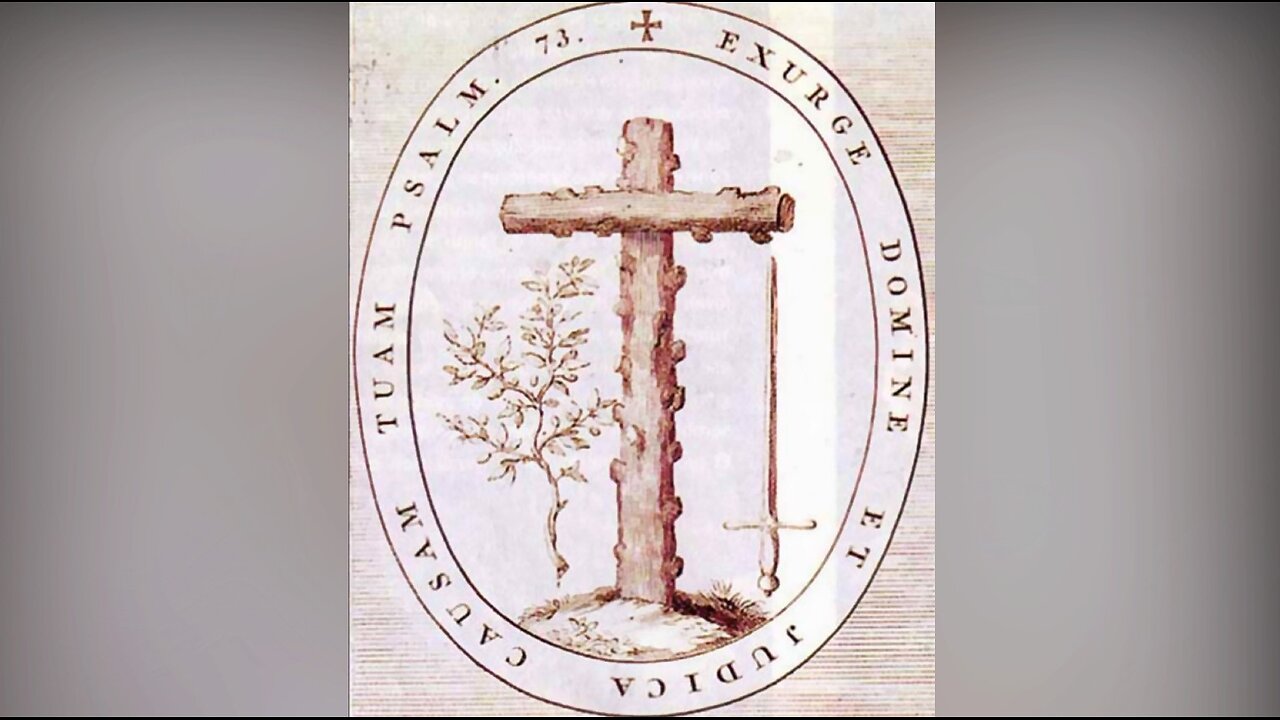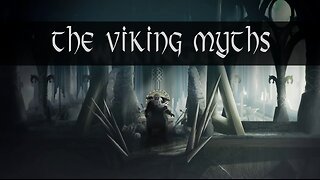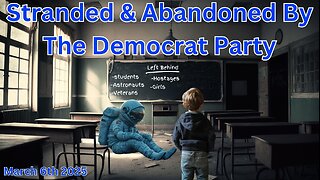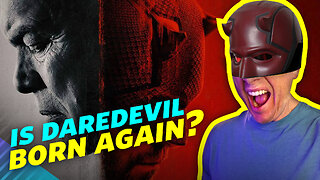Premium Only Content

The Myth of the Spanish Inquisition
A 1994 BBC/A&E History Documentary, narrated by Brian Cox.
One of the most controversial organizations in history, the Spanish Inquisition has been poorly understood by the general public. This period of religious persecution, which took place between 1478 and 1834, has historically been shrouded in myth and misconceptions. For despite popular belief, this organization was neither medieval nor exclusively Spanish in nature.
In this brief presentation, "The Myth of the Spanish Inquisition" provides only an overview of the origins and debunking of the myths of torture and genocide. The documentary definitely succeeds in leaving the viewer hungry to know more. The long-held beliefs of the audience are sufficiently weakened by the testimony of experts and the expose of the making of the myth.
The Inquisition began in 1480. Spain was beginning a historic reunification of Aragon and Castile. The marriage of Ferdinand of Aragon and Isabella of Castile created a unified Hispania not seen since Roman times. Afraid that laws commanding the exile or conversion of Jews were thwarted by conversos, i.e. synagogue-going "Catholics," Ferdinand and Isabella commissioned an investigation or Inquisition. They began the Inquisition hoping that religious unity would foster political unity, and other heads of state heralded Spain's labors for the advent of a unified Christendom. The documentary clearly and boldly narrates the historical context, which intimates that the Spanish were not acting odd by their contemporary standards.
The Inquisition Myth, which Spaniards call "The Black Legend," did not arise in 1480. It began almost 100 years later, and exactly one year after the Protestant defeat at the Battle of Muhlberg at the hands of Ferdinand's grandson, the Holy Roman Emperor Charles V. In 1567 a fierce propaganda campaign began with the publication of a Protestant leaflet penned by a supposed Inquisition victim named Montanus. This character Protestant of course) painted Spaniards as barbarians who ravished women and sodomized young boys. The propagandists soon created "hooded fiends" who tortured their victims in horrible devices like the knife-filled Iron Maiden which never was used in Spain). The reason for the war of words: the Protestants fought with words because they could not win on the battlefield.
The Inquisition had a secular character, although the crime was heresy. Inquisitors did not have to be clerics, but they did have to be lawyers. The investigation was rule-based and carefully kept in check. And most significantly, historians have declared fraudulent a supposed Inquisition document claiming the genocide of millions of heretics. The so-called witch hunt in Spain was far less intense that the “witch mania” taking place in the rest of Europe, although it lasted longer. The Spanish Inquisition was sparked by the widespread witch hunts that developed in Europe in the late 15th century. Through special access to the secrets of the Spanish Inquisition's own archives, a very different version of events from that of popular mythology is uncovered about the Inquisition. It was certainly not blameless and on occasion would be ruthless. However its actions pall in comparison with the scale of persecution in other European countries. In the 16th century for example, 10 times as many heretics were burned in England as in Spain.
What is documented is that 3000 to 5000 people died during the Inquisition's 350 year history. Also documented are the "Acts of Faith," public sentencing of heretics in town squares. But the grand myth of thought control by sinister fiends has been debunked by the archival evidence. The inquisitors enjoyed a powerful position in the towns, but it was one constantly jostled by other power brokers. As the program documents, the 3,000 to 5,000 documented executions of the Inquisition pale in comparison to the 150,000 documented witch burnings elsewhere in Europe over the same centuries.
The programme examines how and why the myth of the Inquisition developed. The approach is purely historical, and therefore does not delve into ecclesial issues surrounding religious freedom.
-
 25:58
25:58
Adaneth - History&Politics
20 days agoThe Viking Myths: Sigurd and the Valkyries (Episode 7-MULTISUB)
30 -
![🔴[LIVE TRADING] Time To Buy The Stock Market Dip?! || The MK Show](https://1a-1791.com/video/fwe1/31/s8/1/K/O/5/p/KO5py.0kob-small-The-MK-Show-Mar.-6th.jpg) LIVE
LIVE
Matt Kohrs
10 hours ago🔴[LIVE TRADING] Time To Buy The Stock Market Dip?! || The MK Show
1,327 watching -
 36:20
36:20
BonginoReport
4 hours agoJoe Rogan Brings Back Pizzagate (Ep.154) - 03/06/2025
67.6K74 -
 LIVE
LIVE
Wendy Bell Radio
6 hours agoStranded & Abandoned By The Democrat Party
13,555 watching -
 7:41
7:41
Adam Does Movies
16 hours ago $10.17 earnedDaredevil: Born Again Review - Does Disney Do The Show Justice?
59.6K5 -
 5:06
5:06
Tundra Tactical
16 hours ago $3.85 earnedPam Bondi MUST Stop ATF's Zero Tolerance Policy NOW!
28K6 -
 18:38
18:38
The Lou Holtz Show
21 hours agoLou Holtz: "Trump Stands for America—And He Means It!" | Ukraine, Pete Rose & Common Sense 🇺🇸
48.4K9 -
 3:54
3:54
Randi Hipper
21 hours ago$100,000 BITCOIN COMING! HERE'S WHY
30K3 -
 9:34
9:34
ariellescarcella
14 hours ago"Born This Way Is A Lie" : Religious Debate
51.3K12 -
 6:05:13
6:05:13
Akademiks
18 hours agoDay 1/30. Drake Drops lawsuit vs iHeartMedia? Offset and Cardi Calls it Quits. 50 v Jim Jones?
230K14